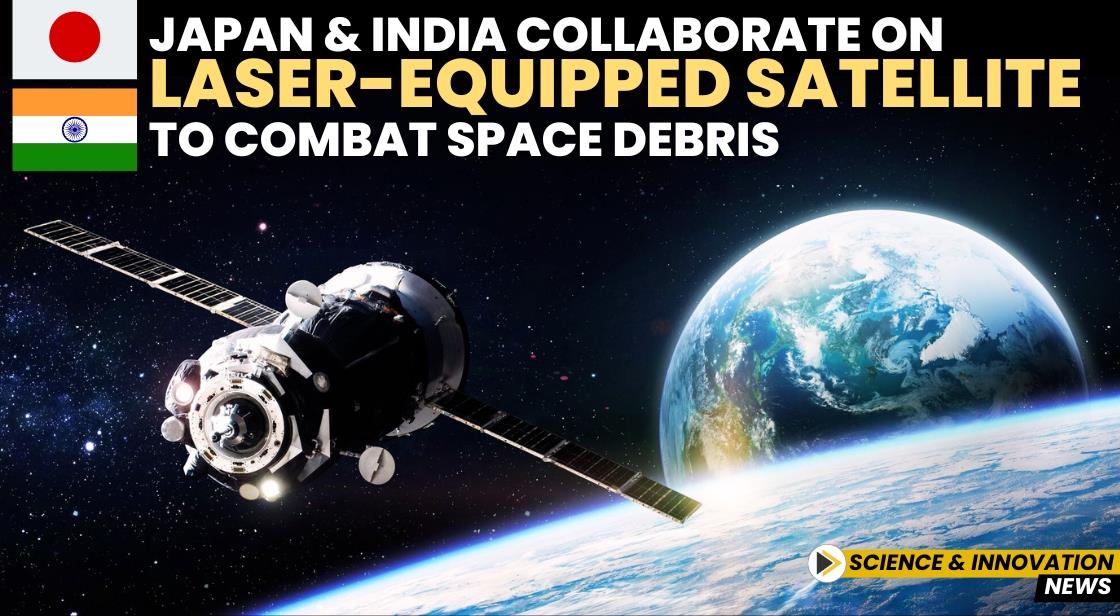Japan and India Collaborate on Laser-Equipped Satellite to Combat Space Debris

News Synopsis
In an effort to tackle the growing problem of space debris and orbital congestion, space startups from Japan and India have announced their collaboration to explore using laser-equipped satellites to clear debris from orbit. The project will study the potential business opportunities for in-space services, such as de-orbiting defunct satellites and extending the lifespan of spacecraft.
Space Startups Involved: Orbital Lasers and InspeCity
The Tokyo-based Orbital Lasers and Indian robotics company InspeCity are the key players in this joint initiative. Orbital Lasers, a company recently carved out from the Japanese satellite giant SKY Perfect JSAT, is developing a laser-based system to stop the rotation of space junk. The system uses laser energy to vaporize small parts of the debris, making it easier for servicing spacecraft to rendezvous and remove the space junk.
InspeCity, founded in 2022, focuses on robotics and space exploration. It raised $1.5 million last year and is committed to advancing technology to improve space infrastructure.
Laser Technology for Space Debris Mitigation
Orbital Lasers plans to demonstrate the laser-based debris mitigation system in space by 2027. Once operational, the system will be mounted on satellites, including those built by InspeCity, assuming they meet regulatory requirements in both India and Japan. The laser technology aims to safely remove debris by halting its rotation, facilitating future space missions and ensuring the safety of satellites in low Earth orbit.
Growing Concern Over Space Debris
The collaboration between Orbital Lasers and InspeCity is timely, as the United Nations panel on space traffic management called for urgent action to track and manage the growing amount of space junk in low Earth orbit. The rapid expansion of satellite constellations, combined with an increase in space junk, has led to concerns over potential collisions and the need for debris removal technologies.
Currently, over 100 companies are operating within the space servicing market, addressing the needs of satellite operators as they expand into orbit. The space debris mitigation market is evolving rapidly, driven by the demand for safe, long-term space operations.
Japan and India's Space Cooperation
This project is part of a broader collaboration between Japan and India, both of whom are also working together on the Lunar Polar Exploration (LUPEX) mission, planned for launch as early as 2026. Additionally, Indian rocket maker Skyroot and satellite builder HEX20 are collaborating with Japanese moon exploration firm ispace on future lunar missions.
The growing commercial space tie-ups between the two countries have already led to shared efforts in satellite data solutions for India's disaster management and agriculture. There is potential for these partnerships to expand into other sectors, such as manufacturing, as both countries seek to align with national policies like India’s "Make in India" initiative.
Conclusion:
The collaboration between Japan’s Orbital Lasers and India’s InspeCity marks a significant milestone in addressing the escalating challenge of space debris and orbital congestion. By leveraging cutting-edge laser technology to safely remove space junk and extend the lifespan of satellites, this partnership holds the potential to revolutionize space servicing. As space activity increases and satellite constellations expand, innovative solutions like these will be crucial in maintaining a safe and sustainable environment in orbit.
This joint initiative not only strengthens the commercial space ties between Japan and India but also sets the stage for future collaborations aimed at advancing space exploration and ensuring the long-term viability of space operations. Through continued innovation and cooperation, these nations are playing a key role in shaping the future of space infrastructure and debris management.
You May Like









